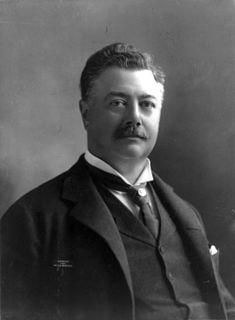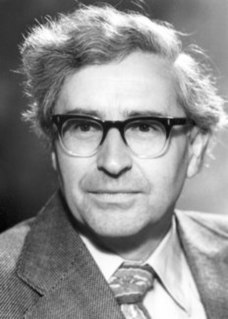A Quote by Paul Goodman
To consider powerful souls as if they were a useful public resource is quite foreign to our customs. In a small sense it is undemocratic, for it assumes that some people really know better in a way that must seem arbitrary to most. In a large sense it is certainly democratic, in that it makes the great man serve as a man.
Related Quotes
You are different from the really great man in only one thing: The great man, at one time, also was a very little man, but he developed one important ability: he learned to see where he was small in his thinking, and actions. Under the pressure of some task which was dear to him he learned better and better to sense the threat that comes from his smallness and pettiness. The great man, then, knows when and in what he is a little man.
The web's democratic in one way and distinctly undemocratic in another way. And I think a lot of the confusion about the political ramifications have to do with that one word having so many meanings. So, it's democratic in that it quite literally delivers power to the people; it, it essentially opens up participation in the public's mind.
The courtroom is one instance of the fact that while our society may be liberal and democratic in some large and vague sense, its moving parts, its smaller chambers--its classrooms, its workplaces, its corporate boardrooms, its jails, its military barracks--are flagrantly undemocratic, dominated by one commanding person or a tiny elite of power.
A man of knowing attains to a sense of humour. Let this always be remembered. If you see someone who has no sense of humour, know well that that man has not known at all. If you come across a serious man, then you can be certain that he is a pretender. Knowing brings sincerity but all seriousness disappears. Knowing brings a playfulness; knowing brings a sense of humour. The sense of humour is a must.
If you're a history buff, you know about J. Edgar Hoover. He was likely the most powerful man in the US. If you start reading about him, the books contradict each other constantly. I was often left with very little sense of the man personally. I had a sense of what he did and didn't do and what people disagreed about whether he did this or didn't do this or that, but I was like, "Why? Why was he doing all of this?" That was my big question.
The ghostly presence of virtual particles defies rational common sense and is nonintuitive for those unacquainted with physics. Religious belief in God, and Christian belief that God became Man around two thousand years ago, may seem strange to common-sense thinking. But when the most elementary physical things behave in this way, we should be prepared to accept that the deepest aspects of our existence go beyond our common-sense intuitions.
Man is concentric: you have to take fold after fold off of him before you get to the centre of his personality. You must get below his animal nature, habits, customs, affections, daily life, and sometimes go away down into the heart of the man, before you know what is really in him. But when you get into the last core of these concentric rings of personality you find a sense of the infinite-a consciousness of immortality linked to something higher and better.
Morality makes stupid.- Custom represents the experiences of men of earlier times as to what they supposed useful and harmful - but the sense for custom (morality) applies, not to these experiences as such, but to the age, the sanctity, the indiscussability of the custom. And so this feeling is a hindrance to the acquisition of new experiences and the correction of customs: that is to say, morality is a hindrance to the development of new and better customs: it makes stupid.
Do not be afraid of large patterns, if properly designed they are more restful to the eye than small ones: on the whole, a pattern where the structure is large and the details much broken up is the most useful...very small rooms, as well as very large ones, look better ornamented with large patterns.






































